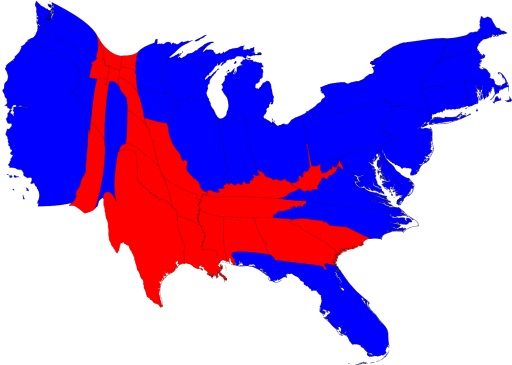I know, voting can be a hassle. And it really won’t make much of a difference anyway, right?
But here are ten reasons you may want to consider showing up and making your voice heard on Election Day.
10. Because It’s a Ritual
You may not be personally deciding who the next president is going to be, but taking part in the process is a ritual that has more than symbolic value. When you personally go to the polls and perform the physical act of voting, you are establishing yourself as a member of a democratic society who has an investment in the outcome. Complaining is passive; voting is active.
9. To Create a Personal Narrative
Your voting patterns over the years can form a personal history. Were you a Reagan Democrat? Did you support Perot in 1992? I still remember that, two months after I turned eighteen, I participated in my first election. I strutted into the voting booth, and proudly cast my ballot for Michael Dukakis. That’s not a good example, but I think we understand each other.
8. Because You Never Know
In 2000, the final count in the Florida election put Bush ahead by just 537 votes. This decided the election. Your state’s presidential pick may be a foregone conclusion, but there are plenty of down-ticket races where you just might make a difference. The League of Women Voters has more examples of close races.
7. Because They Don’t Want You To Vote
In this case, “They” describes the people who have the polar opposite views as you do. They disagree with you on every major issue. They would take the country – in your opinion – in the absolute wrong direction. And they hate you. They don’t want you to vote. They have invested considerable time and resources into discouraging you to vote. Drive them mad.
6. To Represent
In the post-election analysis, pundits who suddenly have a lot of time on their hands will be breaking down the data from the election to see which demographic groups had the greatest impact. The interests of those groups will be of great interest to politicians moving forward. Just ask a soccer mom. By turning out and representing your demographic, you increase the visibility of your group and its needs.
5. For a Sense of Community
They say that all politics is local, and that always makes me think of Election Day. My polling place is an elementary school gymnasium. When I arrive, there is a bake sale in progress to raise money for the school. Elderly volunteers kindly direct me to my district’s section of the gym. And when it’s my turn, I vote. I may be alone in the booth, but we’re all in this together. I always purchase a snack on my way out – it’s for a good cause.
4. To Qualify for Jury Duty
Okay, now that’s just crazy. Isn’t that a reason not to vote? No, jury duty is every bit as much of a civic duty as voting. Sure, it can be a drag. So is paying taxes, but we do it because of what we get in return. If my house is on fire, someone will come and put it out. That’s awesome! Think of jury duty as a government tax on your time. What do you get in return? You get to live in a country where, if you get arrested, you get to be judged by a jury of your peers, not the guy who arrested you. That’s awesome!
3. To Be a Part of History
One way or another, we’re going to make history tomorrow, whether we elect a black president or a female vice president. You don’t want to be able to tell your grandchildren that you voted in that election? You don’t want to be a part of that moment in time? When the results are announced, and the numbers are tallied, you don’t want to be counted among them? I think you do.
2. Because People Have Fought and Even Died For It
That one pretty much speaks for itself. People fighting for the right to vote didn’t consider it trivial. Blacks got the right to vote in 1870. Women got the right to vote in 1920. In 1971, during the Vietnam War, the voting age was lowered from 21 to 18. The reasoning was that a citizen who is old enough to be drafted to fight for the country is old enough to vote for the people who make the decisions about war. Voting is important.
1. Because Democracy is about You
The idea behind our democracy is rule by the people. There is no special class of citizens who make the decisions for the rest of us. It’s up to each of us to take part in our democracy. That’s the only way it works. It’s this incredible experiment where a people stood up and said they didn’t need a king and that they could govern themselves. When we become apathetic about that enormous responsibility, we allow the country to be taken over by interests other than our own. Voting is not only our right as citizens; it is a solemn duty.
The system is far from perfect, and you may not fully buy into all of the reasons I’ve presented. Churchill said that democracy is the worst form of government, except for all of the others. So vote for whatever reason you want. Vote to get the little sticker that says “I Voted.” Indeed, it is a powerful statement.
